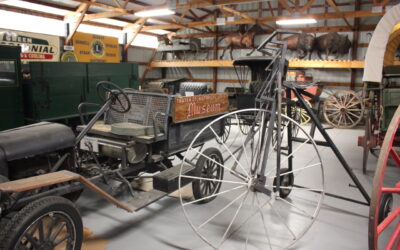During the grasshopper infestations of the mid-1870s, Nebraska boosters were hesitant to advertise the state’s distress, fearing that immigration and investment would be discouraged. Railroad companies, town boomers, and newspaper editors often tried to downplay the impact of grasshopper damage on the state. The Daily State Journal of Lincoln on February 5, 1875, published a brief letter from Carlton under the title “What a Lady Thinks of Nebraska,” which was doubtless intended to assure readers that the worst of the grasshopper reports were exaggerated.
“A certain lady writing to a Lincoln friend, from Carlton P.O., Fillmore county, Nebraska, says among other things that her family is getting along well, and will get through the winter without any help, but that one of the farm horses is about to die, etc. She thinks the public press is doing Nebraska great injustice, as well as injury in the publication of damaging reports of starvation etc. She says, ‘Our crop failure here this year has been only a partial case, as everybody must admit. A local failure was experienced in Illinois one year, while the next year was a trifle better, and these two years within an interval of two years. So, Nebraska is not the only state in the Union liable to crop failures.
“The great trouble in Nebraska at present (at least near us), is most of the people who have come here during the last two or three years, had no means when they came and those who had means when they came have exhausted them in improvements etc. and consequently are not able to help their neighbors. There are many of our neighbors here who are much better off today than when they came two or three years ago. And yet, they have to get assistance to help them through. We have not so far asked any assistance, neither will we, if we can possibly get along without it. We are of the opinion that the grasshopper raid has not been such a great injury as it has been represented but at the same time, there are many who will need assistance, while others will get help who do not deserve it.”
The Journal concluded, “For good sense and sound logic, this letter beats anything yet heard from in the female line. Let some others of the fair sex try their hands.”



